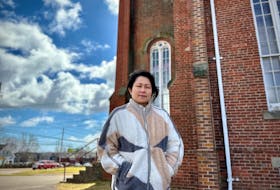It’s very troubling to read that John Palmer was upset over hearing an acknowledgement by the Confed Centre that it resides on unceded Mi’kmaq territory. So small. So petty. So angry.
In addition to setting to one side his settler-colonial mindset, he would benefit greatly from reading a new book by Jessica McDiarmid, Highway of Tears, about the dozens of Indigenous women and girls who have gone missing and murdered along Highway 16 in northern British Columbia.
Believe me, it makes for very painful reading. For instance, did you know that Indigenous women are six times more likely to be killed than non-Indigenous women? Indeed, there is a powerful line in the book, quoting an Indigenous female activist, that bears repeating: “Every time we walk out our doors, it’s high risk.”
In terms of overall substance, Mr. Palmer may wish to check his history. The Treaty of Paris (1763) was signed between Britain and a defeated France. It was not signed by the original Wabanaki (the Mi’kmaq, Maliseet, Penobscot, Passamaquoddy and Abenaki nations). As history professor Jeffers Lennox wrote in his 2017 work, Homelands and Empires: “The Wabanaki were not included in the Treaty of Paris, nor did their land rights fall clearly under the stipulations issued in the Proclamation of 1763.”
He goes on to argue that the territorial rights of the Mi’kmaq and Wulstukwiuk (another nation of the Wabanaki Confederacy) did fall under a section of the Royal Proclamation that mentioned specifically Indigenous “nations” that “should not be molested or disturbed in the Possession of such Parts of Our Dominion and Territories as, not having been ceded or purchased by Us, are reserved to them, or any of them, as their Hunting Grounds…”
Like Prince Edward Island, most of British Columbia is unceded Indigenous territory. The Supreme Court of Canada’s 1997 Delgamuukw decision recognized that title to the land, unless done so through a land claims treaty, rested with Indigenous peoples. It is worth emphasizing here that there are no land treaties (only peace and friendship treaties) signed by the Mi’kmaq and colonial governments in the Maritime provinces.
Moreover, in the 2004 Haida Nation v. British Columbia legal decision, then-Chief Justice of the Supreme Court, Beverley McLachlin, wrote succinctly: “Put simply, Canada’s Aboriginal peoples were here when Europeans came and were never conquered.” She then went on to argue the following: “Many bands reconciled their claims with the sovereignty of the Crown through negotiated treaties. Others, notably in British Columbia, have yet to do so.” The “others” mentioned reside here, in this region.
So, if you don’t mind, I’ll take the word of Chief Justice McLachlin over that of Mr. Palmer. But in the spirit of Indigenous reconciliation, we all need to do better.
Peter McKenna is professor of political science at the University of Prince Edward Island.









